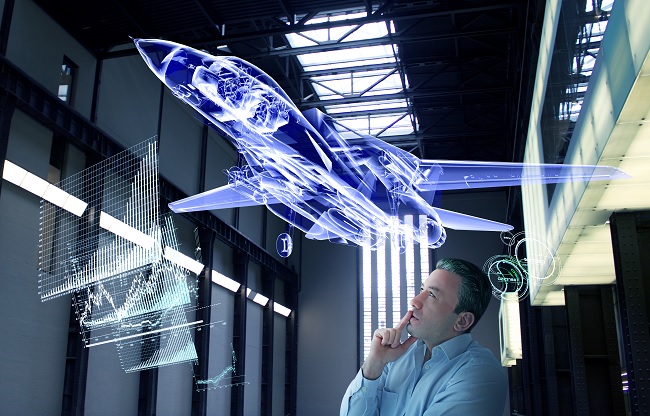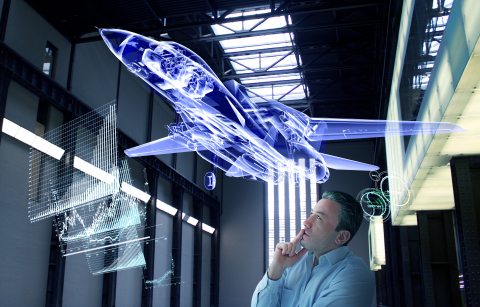EIGHT COMPANIES JOIN CATALYST ACCELERATOR’S DIGITAL ENGINEERING FOR SPACE APPLICATIONS: MODELING AND SIMULATION COHORT

COLORADO SPRINGS, COLORADO, Aug. 20, 2021 (GLOBE NEWSWIRE) — Eight small businesses will come together from across the United States for the Catalyst Accelerator’s cohort focused on Digital Engineering for Space Applications: Modeling and Simulation.
The Catalyst Accelerator, powered by the Air Force Research Lab Space Vehicles Directorate (AFRL/RV), was developed to promote technology advancement for the warfighter and guide technology transfer for the government to industry and vice versa. Modeling and simulation (M&S) is a key enabler of warfighting capabilities. It helps to save lives, save taxpayer dollars, and improve operational readiness. Therefore, the US Space Force, in conjunction with AFRL/RV, is seeking bold and disruptive technologies enabling modeling and simulation to improve operator training, system design, acquisition, architecture resilience, and operations.
The Digital Engineering for Space Applications: Modeling and Simulation cohort will meet every other week for 3 months beginning August 23rd. Each company will collaborate with subject matter experts, work with government and commercial Sherpas, complete an intensive customer discovery process, and receive funding sponsored by Lockheed Martin. The cohort will conclude with a Demo Day in November where companies will pitch their technology to government and industry partners.
KiMar Gartman, Program Director for The Catalyst Accelerator, stated, “The Catalyst Accelerator team was tasked with finding companies with unique capabilities that would leverage modeling and simulation to improve operator training, system design, acquisition, architecture resilience, and operations. I am excited about the eight companies we have selected for this Accelerator. Their technologies will strengthen the US warfighter capabilities across the Department of Defense.” Capt DJ Hayes, Government Lead for The Catalyst Accelerator, expressed, “We are excited to see such a diverse set of technologies in the Digital Engineering for Space Applications: Modeling and Simulation cohort and we are looking forward to bringing the eight small businesses together to develop innovative M&S solutions for the warfighter.”
The Catalyst Accelerator team, with technical advisement from both military and industry experts, selected the following small businesses to participate in the upcoming Digital Engineering for Space Applications: Modeling and Simulation cohort:
Awayr A.I. (Cambridge, Massachusetts) combines expertise in machine learning, human factors and cyber security, to solve difficult problems at the frontier of human machine interaction, cyber security and human machine interface design and optimization. For human machine interface design and performance, they provide quantitative analysis of operator efficiency and quality of operator – HMI interaction. For HMI design and optimization, they develop predictive AI that can run simulations for operator – interface interaction, to understand the efficacy of designs and updates prior to fielding. In their cyber division, they are working with NIST to implement a new standard in security awareness testing and training, with implications for the implementation of CMMC. Additionally, they are preparing working with an FFRDC on a critical infrastructure proposal for a government agency, that has broad-ranging potential for improving the US’s cyber defense posture.
Embeddetech, Inc. (Tulsa, Oklahoma) Virtuoso and Montage provide no-code and digital economy infrastructure, respectively, creating a momentous leap forward in composable software development workflows. These platforms provide superior benefits to a wide range of diverse markets and technology categories, including modeling & simulation, digital twin, digital transformation, DevSecOps, RPA, IoT and Enterprise Integration, and much more. Virtuoso and Montage create a completely new paradigm for how software solutions with complex requirements can be effortlessly composed.
GridRaster Inc. (Mountain View, California) is building the most advanced open, modular, scalable, vendor agnostic cloud based XR infrastructure for ultra-realistic simulations and training on commercially available devices. It combines the best of gaming technologies/concepts with traditional simulator capabilities in XR by leveraging distributed cloud computing, 3D Artificial intelligence and DevSecOps based agile deployment and operation to deliver a ubiquitous, on-demand and immersive training system for agile joint multi-mission aviation operations.
Improbable LLC (Arlington, Virginia) brings clarity to complexity for customers harnessing the growing power of synthetic environments. Their world-class team of experts and software platform is expanding the performance envelope for commercial games made in the US, UK and Canada, and synthetic environments for the US and UK government. Built from the ground up with open standards and supported by an ecosystem of partners from across industry and academia, it’s a more efficient, flexible, and cost-effective way to build and operate the synthetic solutions of the future.
ISSAC Corp (Colorado Springs, Colorado) is focused on finding the hidden stories in complex datasets and creating automation to allow analyst to optimize the use of streaming and historic data. ISSAC provides advanced system of systems engineering solutions and are developing a life cycle Digital Engineering tool to enable data sharing and engineering design refinement for the entirety of a platforms life cycle. In addition, their modular approach to Artificial Intelligence solutions enables rapid workflow tailoring, customer flexibility as needs evolves, and a smart process for advancing the art of knowledge discovery as technology advances.
Kayhan Space Corp (Boulder, Colorado) Kayhan Space is a software analytics platform focused on satellite conjunction assessment, collision avoidance, and space object tracking and navigation. Kayhan brings together an incredible team of astrodynamics and software engineers with many years of experience supporting NASA and JPL missions, as well as building enterprise software. They also bring automation to an otherwise manual and time-consuming process. By doing so, they save time and money for satellite operators, and most importantly ensure mission safety.
Synaptech, LLC (Colorado Springs, Colorado) has quickly become a leading small business provider of modeling, simulation, and analysis (MS&A) expertise and a developer of innovative software and analytical solutions for the Space Defense Industry. Synaptech operates with speed and agility to quickly integrate people, processes, and technologies to solve their customer’s most challenging problems on an operationally relevant timeline. Synaptech’s multi-disciplinary team of engineers, scientists, analysts, mathematicians, and designers are committed to protecting the freedom that our nation enjoys and creating a better tomorrow for future generations.
Vermeer (Jackson Heights, New York) specializes in a leading-edge suite of AR mission planning tools and autonomous sUAS mission execution for both DoD and commercial customers. From their expertise from years of piloting drones on the sets of blockbuster Hollywood films, they built Vermeer as an internal tool for pre-mission planning and visualization. Today, Vermeer is capable of integrating into any autonomous platform, from sUAS to satellites.
About Catalyst Accelerator
The Air Force Research Laboratory Space Vehicles Directorate and United States Space Force’s Catalyst Accelerator is a NewSpace-focused defense and national security industry accelerator, headquartered on the Catalyst Campus for Technology and Innovation (CCTI) in Colorado Springs, Colorado. CCTI is a collaborative ecosystem where industry, small business, entrepreneurs, startups, government, academia, and investors intersect with Colorado’s aerospace and defense industry to create community, spark innovation, and stimulate business growth. The Catalyst Accelerator is a collaborative program hosted by Catalyst Campus for Technology and Innovation (CCTI, a Colorado 501(c)3) in partnership with the United States Space Force, and the Air Force Research Laboratory to provide a robust, mentor-driven curriculum for accelerator teams.
This article was written on Intrado Global Newswire.





